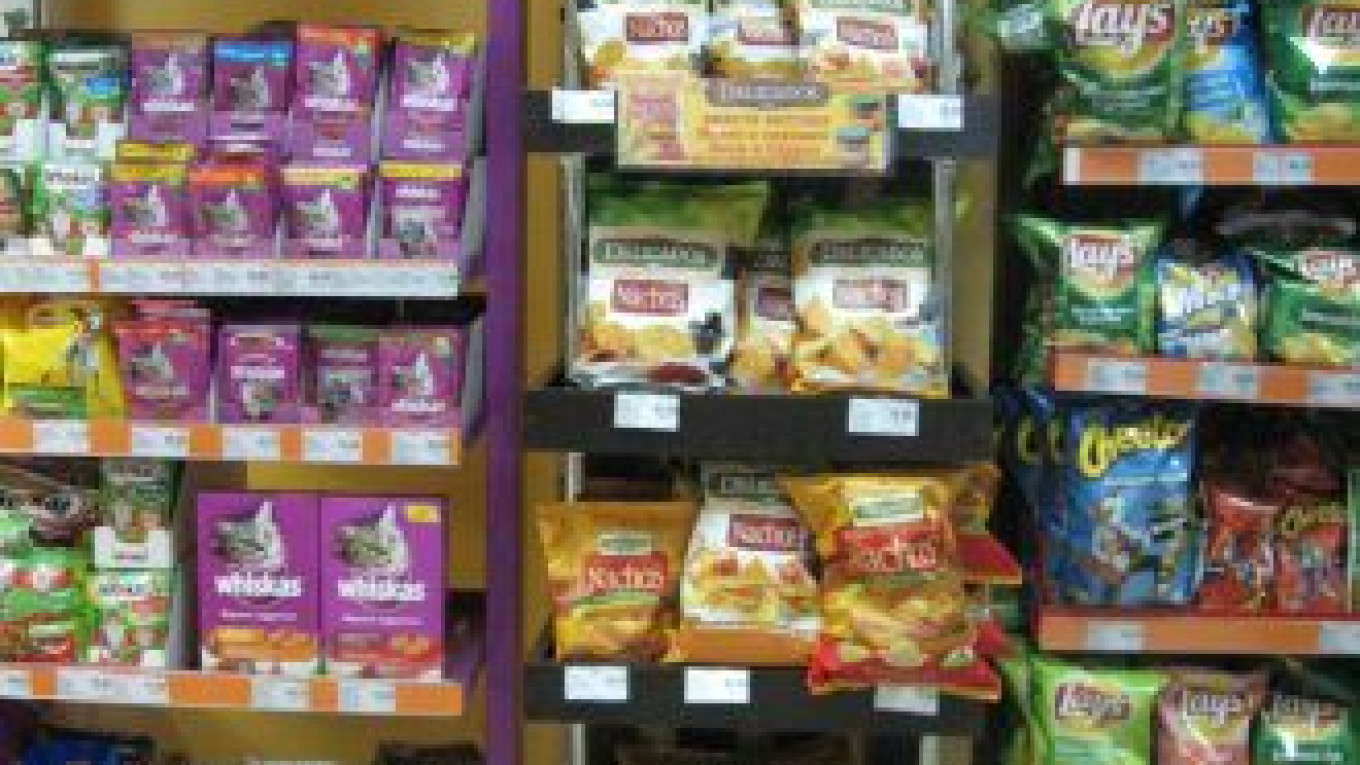When President Vladimir Putin flew to Mexico for the G20 summit in June this year, it is unlikely he was plotting to use his visit to grow the Russian market for tortillas.
But top-level political contact helps boost the popularity of Mexican food among ordinary Russians, according to Francisco Yong, managing director at Gruma, the Mexican tortilla and corn flour manufacturer that made the leap to Moscow in 2011.
And as Russians become more familiar with Mexican cuisine, Gruma expects that the rise in its fortunes will be rapid.
Gruma entered Russia last year when it bought U.S. entrepreneur Steven Brown’s Solntse Mexico for $7 million. Now experiencing 20 percent year-on-year growth, Gruma’s local operation hopes to more than double in size by 2016.
“Russia is a relatively small market. … Its importance is not the size but the potential it has for development,” said Yong, who oversees Gruma in Europe.
Gruma, which operates under the Delicados brand name, is one of several Mexican companies that have invested in Russia in recent years as the economic powerhouse of Central America quietly extends its reach beyond that of a traditional focus on domestic customers.
The Mexican cement and building materials giant Cemex, the leading player in its sector in the U.S. and Mexico, has also carved out a presence in Russia.
The Russian Foreign Ministry put the total annual trade turnover between Russia and Mexico in 2010 at $768.5 million. But the current figure is about $2 billion, according to ProMexico, a branch of the country’s Economy Ministry.
Both Russia and Mexico are members of the Asia-Pacific Trade Organization, and in 2013 Russia will inherit the leadership of the G20 from Mexico.
ProMexico, which promotes Mexican business, has 29 offices in different parts of Mexico and 33 offices abroad, including ones in India, China and Brazil.
The organization is now looking to set up an office in Russia, chief executive Carlos Guzman said in a July interview during his first-ever trip to Moscow.
ProMexico’s Frankfurt office currently coordinates the organization’s work with Mexican businesses in Russia.
“Russia is a growing economy that needs many things from the outside [world], and we want to be a part of that,” Guzman said. “The first thing is to look at Russia as an export market for Mexican produce.”
About 80 percent of Mexico’s $350 billion of annual exports is manufactured goods.
The “low-hanging fruit” for Mexican companies in Russia includes the aerospace, mining, agriculture, automobile, medical science and information technology sectors, said Guzman.
Gruma, which chose to enter Russia through an acquisition rather than organic growth, studied the local market for four years before making its move, Yong said. It now has one manufacturing facility in Moscow. As well as producing tortillas and nachos, it also sells corn flour to the brewing and snack industries.
“[Acquisition was] a really good way of having a major retail presence in supermarkets in Moscow and other big cities. … It was easier for us to build on top of that,” said Yong.
The growth of international cuisine in Moscow, rising incomes, more international travel and decreasing amounts of time available to busy urban populations for cooking all contribute to the demand for Gruma’s products, he added.
While Mexican business is looking forward to more opportunities in Russia, there is unlikely to be a significant upswing in investment flowing the other way.
“There are companies from Russia in Mexico, but their operations are very, very small,” said Erwin Feldhaus, the ProMexico director responsible for Central and Eastern Europe, including Russia.
Mexican low-cost airline Interjet is one of the exceptions. Interjet has ordered 20 Sukhoi Superjet 100s for its aircraft fleet, making it one of the few companies outside the former Soviet Union to commit to the flagship Russian aircraft plagued by safety fears.
Based on Mexico’s own experience, ProMexico even had some words of advice for those in the Kremlin determining policy.
Mexico was an oil-based exporter in the 1980s, an economic model that “didn’t work very well,” said Guzman. Then it succeeded in diversifying.
“Eventually that’s the journey Russia is going to follow,” said Guzman, praising Moscow’s recent accession to the World Trade Organization.
“As soon as Russia opens up its economy, it will have more opportunities as a country.”
Related articles:
A Message from The Moscow Times:
Dear readers,
We are facing unprecedented challenges. Russia's Prosecutor General's Office has designated The Moscow Times as an "undesirable" organization, criminalizing our work and putting our staff at risk of prosecution. This follows our earlier unjust labeling as a "foreign agent."
These actions are direct attempts to silence independent journalism in Russia. The authorities claim our work "discredits the decisions of the Russian leadership." We see things differently: we strive to provide accurate, unbiased reporting on Russia.
We, the journalists of The Moscow Times, refuse to be silenced. But to continue our work, we need your help.
Your support, no matter how small, makes a world of difference. If you can, please support us monthly starting from just $2. It's quick to set up, and every contribution makes a significant impact.
By supporting The Moscow Times, you're defending open, independent journalism in the face of repression. Thank you for standing with us.
Remind me later.







